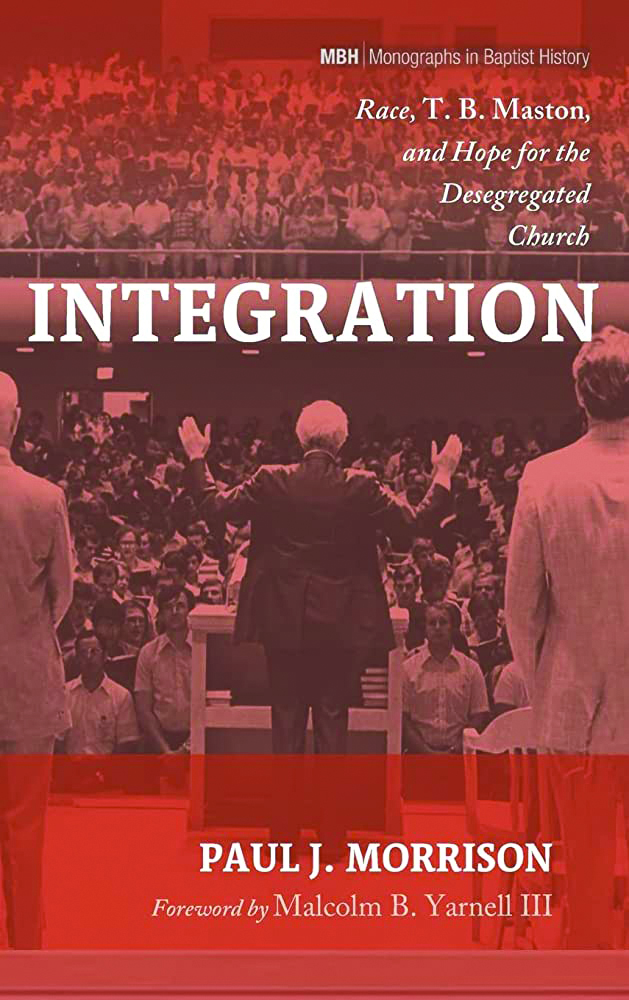In 1995, Southern Baptists finally issued a formal resolution apologizing “to all African Americans for condoning and/or perpetuating individual and systemic racism in our lifetime, and we genuinely repent of racism of which we have been guilty, whether consciously or unconsciously.”1“Resolution on Racial Reconciliation on the 150th Anniversary of the Southern Baptist Convention.” https://www.sbc.net/resource-library/resolutions/resolution-on-racial-reconciliation-on-the-150th- anniversary-of-the-southern-baptist-convention/
A call for integration
But 1995 didn’t occur ex nihilo. In Integration: Race, T. B. Maston, and Hope for the Desegregated Church, Paul Morrison helps readers engage the decades-long work of T. B. Maston, who sought to “reform the racially misguided interpretations of Scripture in the church and their subsequent prejudices” (3). Maston, as the leading ethicist of Southwestern Baptist Theological Seminary until 1963, laid much of the groundwork that would eventually lead to sweeping changes in race relations in the Southern Baptist Convention (SBC).
While Maston’s standpoint on the necessity of the fully integrated body of Christ stood at odds with many member churches of the SBC, he stood fast on the principles of Scripture, advocating for a oneness found only in Christ.
To that end, Maston repudiated the “idea of the homogenous church” as falling “short of the New Testament ideal. That ideal is a closely knit fellowship of people of different classes, colors, and cultures: all brothers and sisters in Christ” (71). In his work with the Christian Life Commission (CLC), Maston’s ethical framing led to multiple resolutions as well as intergenerational relationships that crossed racial lines. “Maston was among those few professors in the 1930s seeking to offer a course of study for Black ministers” despite portions of campus remaining closed to the same students (69).
Maston, well aware of the evils of Jim Crow segregation, would go on to argue that Scripture requires Christians to remove any form of segregation as “contrary to the spirit and teaching
of Christ”(24).
When tensions continued to build at Southwestern, Maston entered a forced retirement in 1962 during the Civil Rights Movement. His work continued with the SBC through the CLC both in the Texas State Convention as well as at the national level. Unfortunately, the vision to move “from segregation through desegregation and finally into integration” took longer than his lifespan (71).
A unique framing of ethics
Morrison’s volume points to the unique framing of ethics that Maston employed to advocate for full integration of the people of God. As a conservative, Maston upheld the scriptures as the final authority in all matters and made his case for racial integration accordingly. Maston’s “elevation of the virtues of love and justice as well as obedience to the commands and principles of Scripture” drove his work as an ethicist and leader fighting to end an unbiblical system (101).
While the convention still has quite a lot of work to do related to the issue of race, engaging authors like Maston helps move our conversations forward in all the best ways. Developed from Morrison’s dissertation work, the text has a few rough patches that could have used a closer editorial eye, but readers should not miss the challenges that T. B. Maston, the great SBC statesman, brings to our own racially charged era









